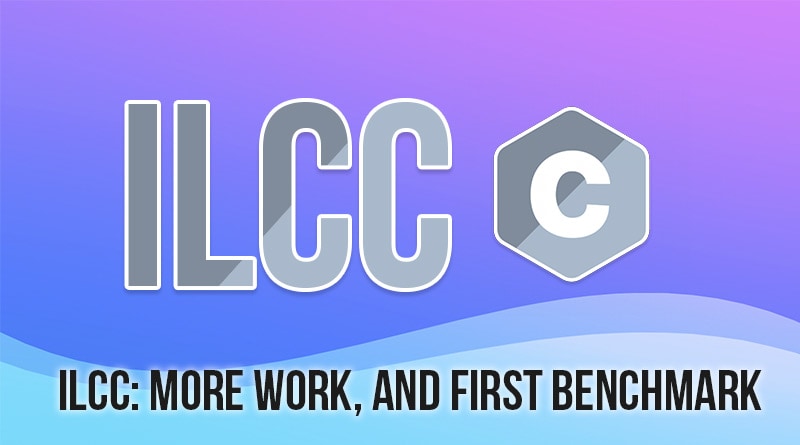
ILCC: A small update and working sample/benchmark for my .NET C Compiler
PSPEMU C# MISC COMPILERS
May 19, 2012

I have reached a new milestone. I have been fixing bugs and now I can compile and run successfully one of my programs. It is a compression tool, that is great for benchmarking. So I have made a benchmark to test the performance of the .NET code in terms of the native code.
Project:https://github.com/soywiz/ilcc
You can try the sample by yourself: https://sites.google.com/site/cspspemu/downloads/comptoe_ilcc.7z?attredirects=0&d=1
Native executables are build using microsoft c/c++ compiler with “cl /Ox” (maximum optimizations).
comptoe_ilcc.exe -c3 file.7z file.7z.c3Encoding[03] file.7z -> file.7z.c3…SuccessElapsed: 1225
comptoe_native_cl_x86.exe -c3 file.7z file.7z.c3Encoding[03] file.7z -> file.7z.c3…SuccessElapsed: 810
comptoe_native_cl_x64.exe -c3 file.7z file.7z.c3Encoding[03] file.7z -> file.7z.c3…SuccessElapsed: 804
Also there are more targets:
Available Targets: yaml – Outputs YAML markup pinvoke – Outputs .NET pinvoke source with function declarations and structures (not fully implemented yet) cil – Outputs .NET IL code (not fully implemented yet) xml – Outputs YAML XML
Besides to generate IL Code, you can generate pinvoke signatures and output the AST as XML or YAML. So it can be used to analyze C code in C# using the library or in other languages outputing to XML.
Executable sizes:
| 25.088 | comptoe_ilcc.exe | 16.896 | ilcc.Runtime.dll |
|---|---|---|---|
| 76.288 | comptoe_native_cl_x64.exe | 66.560 | comptoe_native_cl_x86.exe |
At this point runtime lacks lot of stuffs, so it will get larger. For larger projects the runtime will be smaller than the executable and .NET executables get a better compression, so the executables will be smaller than the native executables most of time (at least compressed).
.NET version is just about 50% slower. That’s great! It is in the same order of magnitude and it is faster than I initially expected.So you will be able to run C code on managed .NET (but with unsafe code at this point) platform without recompiling just with a 50% tradeoff (related to the best optimization level CL can get) and without having to port C code to C# by hand.
Comments
Comments are powered by GitHub via utteranc.es.